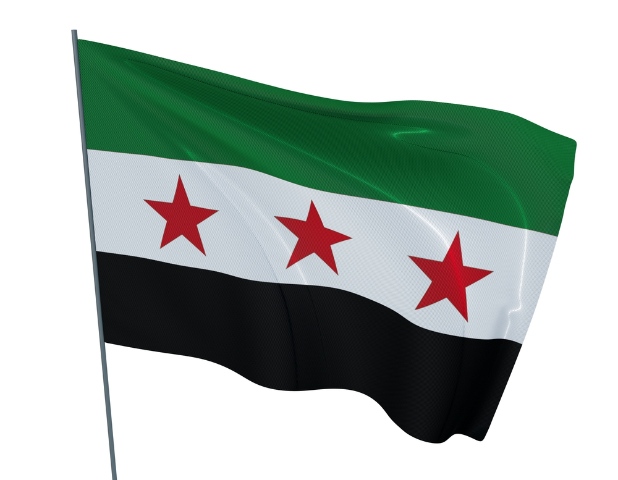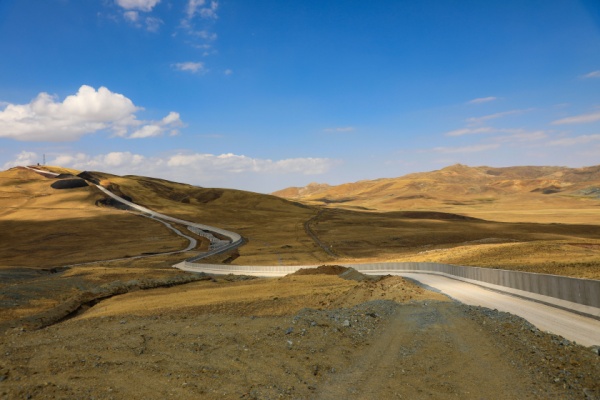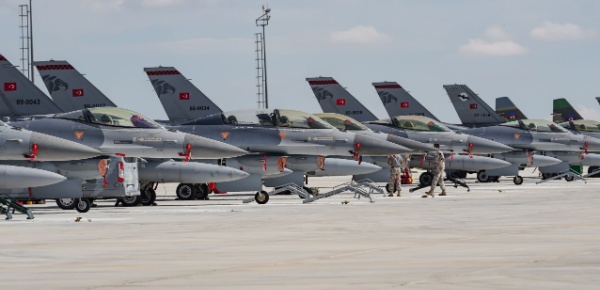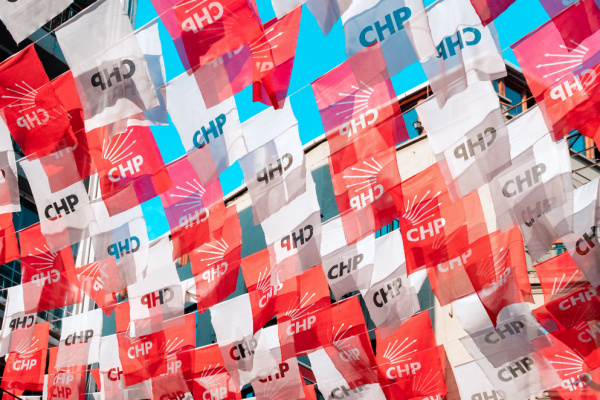Assad’s Fall: A Victory for Turkey?
By Halil Karaveli
It is by no means certain that Turkey expected, or initially sought, Bashar al-Assad’s fall. Turkey may have decided to unleash the jihadists in the first place in order to exert pressure on Assad. Be that as it may, Turkey’s objectives in Syria are unchanged while their realization remains as uncertain tody as they were before Assad’s fall. If anything, Turkey’s prospects are gloomier. What now looms for Turkey in a disintegrating Syria is a strategic disaster, with the emergence of a Kurdish proto-state backed by the United States and Israel.

BACKGROUND: When Hayat Tahrir al-Sham (HTS), an offshoot of al Qaeda that is designated as a terrorist group by the United Nations and the United States, on December 8 ended President Bashar al-Assad’s twenty four year old rule (as well as putting an end to the Arab nationalist Baath Party’s sixty one year old rule) a more than a decade old Turkish goal was belatedly fulfilled.
When Syria’s Sunni majority rose against Assad during the Arab Spring, Turkey – notwithstanding that then Prime Minister Recep Tayyip Erdoğan had cultivated a close, personal relation with Bashar al-Assad – appropriated the Sunni cause. Turkey threw its weight behind the Muslim Brotherhood, thwarted American efforts to empower non-Islamist opposition groups, provided crucial sanctuary for Sunni jihadist rebels and exacerbated Syria’s sectarian strife.
Erdoğan and his Foreign Minister Ahmet Davutoğlu, an Islamist intellectual who had gained prominence as the author of an influential treatise that made the case for Islamist-expansionist Turkish foreign policy, envisioned a Middle East where Muslim Brotherhood regimes would proliferate with Turkish support and provide Turkey with “strategic depth.” “We will continue to be the master, the leader, and the servant of this new Middle East,” Davutoğlu vowed.
But Turkey was disappointed. President Barack Obama resisted Erdoğan’s insistent calls to arm the Sunni rebels and to intervene in Syria together with Turkey. Obama was particularly concerned about genocide against the Alawite minority, the sect to which the Assads belong. Turkey nonetheless remained adamant in its support for the Sunni jihadists who in fact would have succeeded in overthrowing Assad already in 2015-16 had it not been for the indiscriminate bombing campaigns of the Russian air force and for the intervention of the Iranian Republican Guard forces and Hezbollah militias. Now, with Iranian power degraded and Hezbollah devastated by Israel, and Russia exhausted by its war against Ukraine, Assad was defenseless and the geopolitical environment propitious for the Sunni jihadist power-grab.
But Turkey is chastened by what proved to be a disastrous intervention in Syria. Turkey’s sponsorship of the Muslim Brotherhood movement, not only in Syria but also in Egypt, earned it the hostility of leading Sunni conservative Arab powers, chief among them Egypt that in retaliation (after its Muslim Brotherhood president was overthrown in a military coup) partnered with Greece, Cyprus and Israel to block Turkey’s moves in the eastern Mediterranean. Turkey has since worked hard to regain the trust of the dominant Arab powers of the Middle East.
Meanwhile, Turkey found itself hosting more than five million Syrian refugees whose presence has generated widespread anti-immigrant sentiment and is costing the ruling Justice and Development Party (AKP) significant electoral support. And the implosion of Syria, for which Turkey bears a heavy responsibility, opened for the establishment of Kurdish self government under the auspices of the Kurdistan Workers’ Party (PKK), the terrorist-designated group that has fought an insurgency against Turkey since 1984.
IMPLICATIONS: The jihadists that overran the Assad regime benefited from Turkey’s indirect support. HTS was protected by the Turkish military in the northwestern Syrian town of Idlib, and it is likely that its emergence out of its sanctuary in late November was approved by Turkey. But Turkey’s proxy is the smaller Syrian National Army that is sidelined by HTS, and there is little reason to assume that the relationship between Ankara and HTS will be smooth. “Syria is too important a country to be left to HTS,” wrote one prominent Turkish pro-AKP political commentator.
Unlike what was the case a decade ago, Turkey’s involvement in Syria is no longer ideologically motivated, and Turkey is eager not to jeopardize its newly restored position as a politically responsible power in the region. Turkey’s Foreign Minister Hakan Fidan was quick to emphasize the need for a Syrian government that is pluralistic, embracing all ethnic and religious groups. This is in stark contrast to Turkey’s position a decade ago, when it exhibited scant sympathy for the fears of Syria’s Alawite, Christian and Kurdish minorities. While early statements by the jihadists show that their leadership is keenly aware of the need to appear moderate, their avowed conversion to pluralism can hardly be taken at face value.
It is in fact by no means certain that Turkey expected, or initially sought, Assad’s fall. As late as December 5, when the jihadists took Hama, Turkey’s National Security Council called on Assad to “come to an agreement with the legitimate opposition.” Indeed, Turkey had recently been exploring an accommodation with Assad, trying to induce him to accept a return of refugees. Assad however made clear that he would not contemplate any deal as long as Turkish troops remained in Syria. Turkey may have decided to unleash the jihadists in the first place in order to exert pressure on him. Be that as it may, Turkey’s objectives in Syria are unchanged while their realization remains as uncertain today as it was before Assad’s fall.
While refugees have started to return, they will not continue to do so, and the flows may indeed be reversed, if stability and peaceful coexistence among Syria’s different ethnic and religious groups proves elusive and divisions are exacerbated. Indeed, Alawites are now seeking refuge in Lebanon. “From Turkey’s perspective, the new element of risk and peril is a collapse of the Syrian state,” says Sinan Ülgen, a former Turkish diplomat. He points out that “the fragmentation of the political unity of Syria could lead to the emergence of a proto-state of the Kurdish entity, with the likely backing of the U.S. and Israel.”
Indeed, the Kurds were quick to take advantage of Assad’s fall, expanding their territory to the east and south, even though they were expelled from Manbij to the west of Euphrates by Turkey’s proxy militia, the Syrian National Army. The Kurds, who are estimated to represent between 10 to 15 percent of the population, are now in control of a third of Syria, including most of its oil fields. Importantly, they control the border to Iraq, making them indispensable in preventing Iran from infiltrating Syria with Shiite militias from Iraq and in blunting any future attempts by Iran to once again use Syria as a conduit for arms shipments to Hezbollah in Lebanon. This strategic position makes the Kurds a natural and invaluable ally of Israel.
Israel, which has taken the opportunity since December 8 to obliterate Syria’s military hardware and infrastructure, has a stake in a diminished, crippled Syria. An independent Rojava would not only have the benefit of leaving Syria’s Sunni Arabs in control of little more than a rump state – while the Alawites might also seek to carve out an entity in their coastal heartland. It would also provide Israel with a reliable ally at the strategic junction of Anatolia, Mesopotamia and the Levant. On November 10, Israeli Foreign Minister Gideon Saar said that the Kurdish people “are our natural ally.” Describing the Kurds as victims of Iranian and Turkish oppression, Saar argued that Israel “must reach out and strengthen our ties with them.”
The Kurds, in turn, sense that this is their moment. In a statement published on October 22, Turkey’s pro-Kurdish Peoples’ Equality and Democracy (DEM) Party assessed that “the encirclement of Iran in a ring of war has raised the possibility that the Kurdish people will play a decisive role.” On October 14, the pro-PKK daily Yeni Özgür Politika republished an old article by Abdullah Öcalan, in which the PKK leader enjoins the Kurds to enter into an alliance with the United States and Israel against Turkey.
In 2012, when the PKK-affiliated Kurdish Democratic Union Party (PYD) first wrested control of parts of northeastern Syria, Turkish-supported jihadists of Jabhat al-Nusra, the predecessor of HTS, crossed the border from Turkey into Syria to attack the Kurds. Today though, Turkey cannot rely on HTS to check the Kurds. HTS is eager to endear itself to the U.S and Israel, and will not necessarily do Turkey’s bidding. On December 13, Turkey's Foreign Minister Fidan stated that "the elimination of YPG is our strategic objective" and that Turkey expects its "Syrian brethren" to take steps to dismantle YPG, expell its commanders - including those who are Syrian citizens - and restore full territorial control. On December 15, Turkish Defense Minister Yasar Guler said that liquidation of YPG is Turkey's priority and that it will be achieved sooner or later. Yet, the fall of Assad has not provided Turkey with any new instruments to solve its Kurdish conundrum in Syria. On the contrary, what now looms for Turkey in a disintegrating Syria is a strategic disaster.
CONCLUSIONS: It was clear months before Assad’s fall that the Turkish state elite had come to increasingly fear the consequences of the war and chaos in the Middle East and in particular that the Kurds were poised to take advantage of Israel’s ascendancy and its degradation of Iran’s power. On October 22, Devlet Bahçeli, the leader of the far right Nationalist Movement Party (MHP), a key ally of Erdoğan whose party members populate the state bureaucracy and the judiciary, made the stunning proposition that the PKK leader Öcalan should be granted parole if he renounces violence and disbands the organization. Bahçeli praised Ottoman diversity that has otherwise been anathema to Turkish nationalists, and called on the Kurds to join hands with the Turks. On November 17, MHP deputy chairman Yaşar Yıldırım explained that Bahçeli believes that he had to take this initiative to prevent the loss of territory for Turkey.
Bahçeli may not have foreseen that Assad was going to fall when he did, but the strategic imperative that compelled him to offer Öcalan the possibility of parole has now become more apparent. To avoid the looming strategic disaster in Syria, Turkey needs to convince emboldened Kurds in Turkey and Syria that their best bet is an alliance with the Turks. That is a tall order.
Halil Karaveli is a Senior Fellow with the Central Asia-Caucasus Institute & Silk Road Studies Program Joint Center and the Editor of the Turkey Analyst. He is the author of Why Turkey is Authoritarian: From Atatürk to Erdoğan (Pluto Press)
Does Turkey Stand to Win or Lose as Israel Takes on Iran?
By Barçın Yinanç
President Recep Tayyip Erdoğan’s claim that Israel poses a threat and might even attack Turkey lacks credibility. On the contrary, Turkish and Israeli strategic interests converge. Turkey and Iran have long been at odds in Syria, Iraq as well as in the south Caucasus and Turkey may welcome the degradation of Iranian power in the Middle East. Yet Ankara must also reckon with the risks of an all-out war between Israel and Iran for Turkish interests. Its military presence in Syria and Iraq exposes Turkey to the risk of being directly affected by the conflagration. Ultimately, the unknown consequences of a wider regional war and its spillover effects could outweigh the benefit for Turkey that a weakened Iran would represent.
BACKGROUND: Addressing the opening session of the Turkish parliament on October 1, President Recep Tayyip Erdoğan claimed that Israeli Prime Minister Benyamin Netanyahu is acting out his dream of a "promised land" for Israel and that the Jewish state harbors designs on Turkish territory. "After Lebanon, the next place on which Israel will set its eyes will be our homeland," Erdoğan asserted. The opposition asked for information that sustains the claim: “If there is a threat from Israel, we would like to know about it,” said Özgür Özel, the leader of the main opposition Republican People’s Party (CHP). On October 8, the Turkish parliament held a closed session during which the foreign and defense ministers briefed the lawmakers on the security risks that the wars in Gaza and Lebanon represent. Speaking after the closed session, opposition leader Özgür Özel commented that he had not been convinced about the existence of a purported Israeli threat against Turkey. “We did not hear anything that we did not already know,” he said. The conflagration in the Middle East provides Turkey’s ruling Justice and Development Party (AKP) with an opportunity to consolidate its constituency and mobilize the public. Conjuring an alleged Israeli threat and calling a closed session of the parliament serves to instill a sense of emergency and insecurity among the population. Yet what ultimately amounts to an attempt to divert attention from the dire state of the economy backfired: the announcement of the government – directly after the closed session of the parliament – that new taxes were going to be imposed to boost the national defense industry caused a public backlash and the proposal had to be withdrawn. Nonetheless, Turkish Foreign Minister Hakan Fidan has continued to raise alarm, warning about the risk not only of a wider regional war but also of a Third World War. Although national security issues and the specter of war are clearly exploited for domestic political purposes, with the government hoping to divert public attention from more immediate economic worries, Ankara nevertheless also remains seriously concerned about the fallouts of the escalating conflict between Israel and Iran.
IMPLICATIONS: Turkey was the first Muslim country to recognize the Jewish state, and even though the Palestinian problem historically has been a strain on bilateral relations, Turkish and Israeli national security interests in fact converge. It was only after the peace process between Israel and the Palestine Liberation Organization (PLO) in the early 1990s that Turkish-Israeli bilateral ties were significantly developed but public appearances can be misleading: While Turkey is less vocal about Iran – a neighbor with which its geopolitical rivalry dates to the sixteenth century – than it is about Israel, which it pretends is an enemy but with which it shares strategic interests, Turkey and Iran have clashing interests across the Middle East and beyond. Israel appears determined to inflict huge damage to Hezbollah in Lebanon, and by extension to its patron Iran. This strategy may very well be seen as serving Ankara’s interests, at least in the short term. Turkey and Iran have long been at odds in Syria, Iraq as well as in the south Caucasus. In this light, the degradation of Iranian power in the Middle East is in Turkey’s interest. Indeed, when the Islamist uprising started in Syria 2011, the Turkish AKP government sought to topple Syrian leader Bashar Al-Assad, whose regime survived only thanks to the active support of Russia and Iran. Today, Turkish military units as well as Turkish-backed Islamist groups stand pitted against Iran-backed militias in northwestern Syria. Under normal circumstances, Israel’s airstrikes against Hezbollah positions in Syria, as well as its attack on Iran’s consulate in Damascus last April would hardly have displeased Ankara. Yet Ankara must also reckon with the risks that an all-out war between Israel and Iran inevitably would pose for Turkish interests. Ultimately, the unknown consequences of such a war and its spillover effects could outweigh the benefit for Turkey that a weakened Iran would represent. But domestic political considerations are no less pressing. Erdoğan and his ruling AKP must contend with the widespread popular discontent with the nearly four million Syrian refugees in Turkey; this discontent, which has already cost the AKP votes in recent elections, compels Erdoğan to mend fences with Al-Assad who, however, has been less than willing to accommodate Turkey. The quadrilateral talks between Russia, Iran, Turkey and Syria have been inconclusive as Damascus’ precondition – the withdrawal of Turkish forces from Syrian territory – is a nonstarter for Ankara. Ultimately though, Al-Assad may become more open to reconciliation with Erdoğan as Israel’s onslaught demolishes Hezbollah and degrades the Iranian power that he has relied on. Israel’s next step in its clash with Iran could also have implications in Iraq, where Tehran has acquired considerable political clout after the 2003 U.S. invasion empowered the Shiite majority. Turkey views Iran as a destabilizing actor in Iraq and tries to counterbalance its influence. Iran backs one of the Kurdish rival factions, the Kurdistan Patriotic Union (PUK) which retains close ties with the terrorist Kurdistan Workers’ Party (PKK) that has waged a now four decades long insurgency against Ankara. As the PKK’s freedom of movement has increased in the area under the PUK control, tensions have intensified between Turkey and Iran. Meanwhile, the relationship between Tehran and Baghdad is far from being a simple agent-proxy arrangement. Last August, Iraq signed a memorandum of understanding on military, security and counter-terrorism cooperation with Turkey, raising Iranian concerns about Ankara’s increasing military influence in Iraq. Turkey has established military bases and posts in northern Iraq, and the rapprochement between Turkey and Iraq attests to Baghdad’s effort to consolidate its relative stability as well as its independence from Tehran. Also economic schemes like the Development Road Project, a proposed trade network that will link Iraq to Turkey serves this purpose. For its part, Ankara wants to use the project as an incentive to secure Baghdad’s cooperation against the PKK while the Iranian-backed PUK has expressed its opposition to the Development Road Project, questioning its benefits for the Kurdish region of Iraq. But as Iran is preoccupied with Israel’s offensive, its ability to maneuver in Iraq may become constrained, increasing the capability of the central government in Baghdad to exert power over its territory. In such a scenario, the Iranian-backed Kurdish PUK might be compelled to sever its ties with the PKK. Yet while the degradation of Iranian power would thus translate into gains for Turkey in Iraq, the security situation in Iraq is also of growing concern for Ankara. Although the Iraqi front has remained relatively quiet since October 7, 2023, there are signs that this might be about to change. Iran-backed Iraqi militias have now claimed responsibility for nearly 170 attacks on Israeli targets this past year, of which more than 70 percent took place in September 2024 alone. The escalation may bring about the targeting of U.S. forces that are based mainly in areas under the control of the Kurdistan Democratic Party (KDP). U.S. assets in both Syria and Iraq have already been targeted. The spillover to Iraq threatens to disrupt the relative yet fragile stability of the country to the detriment of Turkish interests.
CONCLUSIONS: President Erdoğan’s claim that Israel poses a threat and might even attack Turkey lacks credibility. It is a transparent attempt by the AKP government to divert public attention from the country’s dire economic situation. In fact, Turkish and Israeli strategic interests converge. Turkey and Iran have long been at odds in Syria, Iraq as well as in the south Caucasus and Turkey may thus welcome the degradation of Iranian power in the Middle East. Yet Ankara must also reckon with the risks that an all-out war between Israel and Iran would inevitably pose for Turkish interests. With its military presence in Syria and Iraq Turkey is at risk of being affected and possibly even drawn into the conflagration in the Middle East. Ultimately, the unknown consequences of a wider regional war and its spillover effects could outweigh the benefit for Turkey that a weakened Iran would represent.
Barçın Yinanç is a foreign policy commentator at the Turkish news site t24
The Border Wall between Turkey and Iran: Security at the Cost of the Environment?
By Vali Kaleji
May 22, 2024
The Border Wall between Turkey and Iran is one of Ankara's most important security projects in recent decades. However, Iran is worried about the negative environmental consequences caused by the construction of the wall. While shared common security concerns may eventually pave the way for closer cooperation between Turkey and Iran, the border wall nonetheless introduces a new element of discord over environmental issues.

Turkey and the United States: A Relationship Restored?
By Barçın Yinanç
March 11, 2024
The diplomatic traffic between Ankara and Washington on handling Sweden’s NATO entry process is emblematic of the erosion of trust between the two allied countries. Nonetheless, Turkey’s ratification of Sweden’s NATO membership and the Biden administration’s subsequent acquiescence to the F-16 sale to Turkey – and the suggestion that Turkey might even be invited back to the F-35 program if it gets rid of its Russian S400 missiles – have restored the bilateral relationship, even though there is still a gap of mistrust between the two allies that will take time to bridge. The crisis in the Middle East compels the U.S and Turkey to cooperate closer but Ankara and Washington will still need to make a sustained effort to rebuild their mutual confidence that the missteps of both sides have eroded.

Can the New CHP Leader Revive Social Democracy in Turkey?
By Halil Karaveli
January 25, 2024
Turkey’s new opposition leader Özgür Özel is proposing to do something that no one has attempted in Turkey since the early 1990s, to revive a social democratic alternative. Yet the CHP’s new leader is making a turn to the left under inauspicious circumstances. The right in its different shades is hegemonic and there is no societal clamor for social justice and equality. Meanwhile, the Turkish labor movement has been reduced to insignificance, depriving social democracy of a base of working class militancy. Yet rampant inequality needs to be addressed, and a left-wing message that addresses economic concerns can help transcend Turkey’s crippling ethnic divisions, encouraging Turkish and Kurdish lower classes to make common cause. It offers a way out of Turkey’s democratic impasse.



